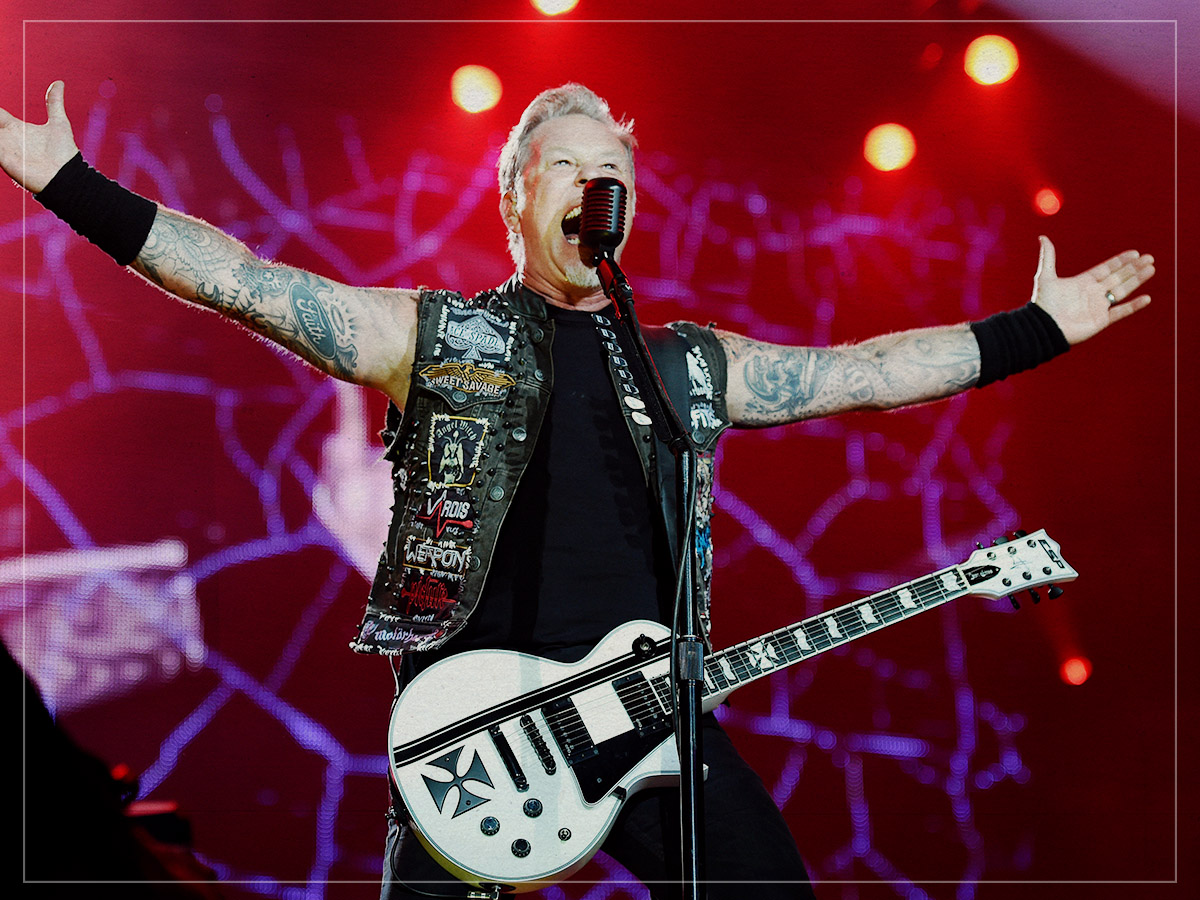Heavy metal has always been a genre that isn’t afraid to confront the bleakest aspects of life. From the occult-tinged heaviness of early Black Sabbath to the bone-chilling nihilism of modern black metal, darkness has been an integral part of its identity. Yet, amidst decades of harrowing lyrics and ferocious soundscapes, Metallica frontman James Hetfield pinpointed one track in particular as the darkest the band has ever written — and it’s not what you might expect. According to Hetfield, the bleakest point in Metallica’s discography comes in the form of “…And Justice for All” standout, “One.”
While early Metallica tracks like “Jump in the Fire” dabbled in more traditional metal tropes — demons, destruction, and chaos — Hetfield’s most impactful writing often steered toward real-world horrors. Rather than inventing monsters, he focused on the darker side of humanity: war, mental anguish, trauma, and death. These are the themes that elevated Metallica from mere metal pioneers to genre-defining storytellers.
Though “Fade to Black” delivered one of Hetfield’s first openly vulnerable moments, detailing suicidal thoughts with haunting clarity, it was “One” that truly encapsulated pure psychological terror. Based on Dalton Trumbo’s 1939 anti-war novel Johnny Got His Gun, the song tells the devastating story of a soldier maimed by a landmine — left blind, deaf, and without limbs, trapped in a body that can no longer function, yet still very much alive.
In an interview reflecting on the track, Hetfield called “One” the “ultimate darkness.” “The most lonely you could ever feel,” he explained. “My brother told me about this. It scared the shit out of me. When I was writing the song, reading the book, [the protagonist] couldn’t speak for himself, so I brought a voice to him. ‘I’m trapped and I don’t know what to do.’”
The musical progression of “One” mirrors this psychological descent. The opening is eerily delicate — a clean guitar riff and a somber mood that feels more like a requiem than a metal track. But as the narrative unfolds and the character’s desperation intensifies, the music erupts into a frenzy of riffs, double bass drums, and lead guitar breaks. The outro is one of Metallica’s most violent and emotionally charged — a sonic representation of pure panic and isolation.
In contrast to other war-themed tracks like “Disposable Heroes,” which explore the mechanized horror of combat, “One” strips away the action and leaves listeners alone with the aftermath. The sound of machine-gun guitars still appears, but here it underscores helplessness rather than heroism. There is no glory — only suffering.
The song’s video only added to its chilling tone. Intercut with clips from Johnny Got His Gun, the visuals depict the full horror of the soldier’s condition. Most haunting are the Morse code messages, as the protagonist tries to communicate with doctors, desperately begging to be euthanized. This wasn’t your typical MTV fare — but it forced viewers to confront the real cost of war in a way few songs ever have.
“One” is not the kind of track you throw on at a party. It’s not meant to entertain in the traditional sense. Instead, it serves as a sobering reminder of human vulnerability, a powerful and painful meditation on loss, identity, and the will to live — or die. As Hetfield himself said, this song represents the “ultimate darkness,” and decades later, it still resonates with unrelenting emotional force.

